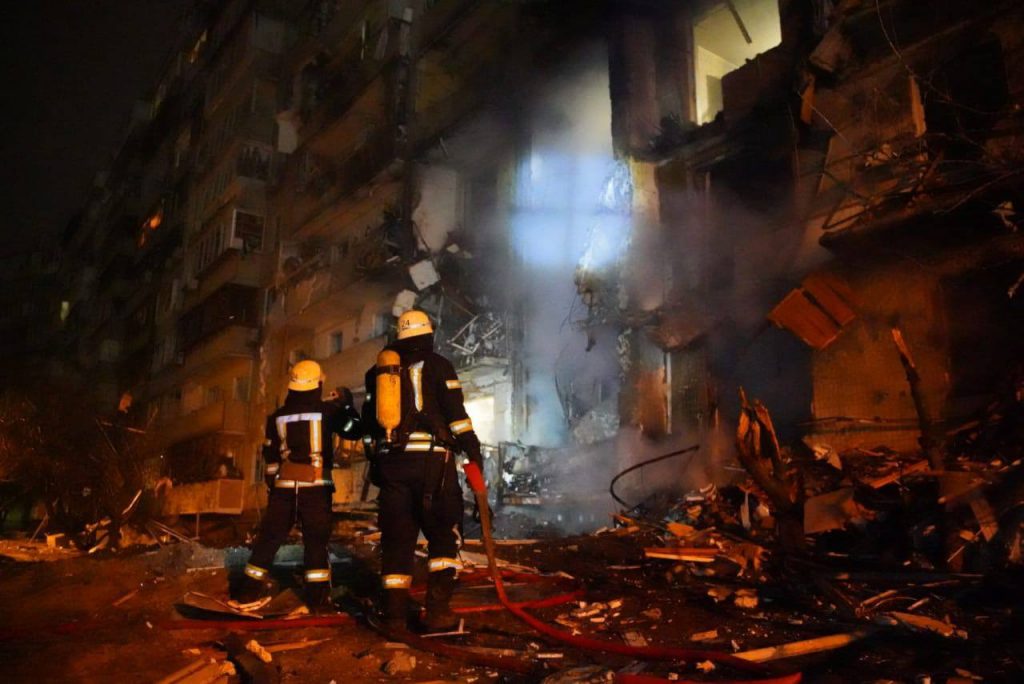
A couple months ago it seemed like if we got through Omicron, we would have weathered one of the worst global crises imaginable. But thanks to Vladimir Putin, we’ve got a new, fresh hell to consider. Here are a few of my unsolicited thoughts, in no particular order.
- War is naturally destabilizing.
While hawks like Robert McNamera, Dick Cheney, and Vladimir Putin imagine they can circumscribe the impact of warmaking, the reality of war is always that its destabilization is in proportion to the size of the countries at war and the war’s proximity to your borders. Relatively big and really close to Europe, today’s Russo-Ukrainian war is destabilizing all of Europe with long-term outcomes we can only begin to guess at. And similarly, Putin is taking a giant risk that his own country won’t collapse. One of the things about authoritarian regimes is that they look strong until suddenly, they don’t.
- Regardless of how long the military engagement lasts, or how soon the Zelensky government collapses, this crisis is likely to last for many years.
It will be a miracle if the Ukrainian government does not collapse – or get taken down – at some point. But regardless of the military outcome of this war, Ukraine will continue to be next door to Russia, Ukraine will be economically and politically weakened, and Putin is likely to be alive and in control of Russia for many more years. Exactly what to do with a very destabilized (and possibly still in a state of guerrilla war) Ukraine will be a thorny problem for the entire world. Ukraine is not like Iraq, or Haiti, small-ish countries without deep global economic ties and proximity to the world’s biggest economic market. What to do about Ukraine will be a chief topic of almost every G-7 economic and military discussion for decades to come.
- American domestic politics will be changed by this war.
The American right’s cozying up to Russia for the last five years will be difficult to untangle. So will the American business community’s willingness to accept Russian investment. Because Russia, through its attack on a sovereign, democratic nation, has outed itself as a clear opponent to a global system created by and protected by America, we are about to undergo a long period of Russian exorcism in our politics and commerce.
- Trump is finished.
If you haven’t watched this clip of Donald Trump Tuesday calling Putin “really smart”, then do it now. The longer Russian forces stay in Ukraine, the more Trump’s blabbering about Putin will look pusillanimous – to everyone.
- The craziest person in the room is the most dangerous.
When a person is crazy, they’re unpredictable. The most important part of global stability for the last eighty years has been the concept of Rational Actor Theory: That nations and leaders always act in their obvious best interest. And so potential national actions become predictable. But when a leader is crazy, it’s hard to figure out what they think is in their best interest. Up to this point, everyone has been guessing what Putin thinks is in his best interest. Maybe they’re good guesses, but guesses just the same. This should be terrifying for everyone who heard Putin remind the world Wednesday that Russia was one of the “most powerful nuclear powers”.
- Western powers will be hard pressed to avoid escalation.
What exactly is escalation in Putin’s mind? Sending Western military trainers to Ukraine? Providing Ukrainian guerrillas with deadly effective Javelin and Stinger missiles? Creating a corridor for Ukrainian elites to escape to safety? Putin will bristle at all these things and may threaten or do real damage to Western powers, either through direct military action on borders, cyberwarfare, or even asymmetric attacks on Western interests in the Middle East or elsewhere. When that happens, how should America and the West respond?
- The world will depend on America to not only defend democracy, but also the world order.
The United States effectively created the global system we live in, first through Bretton Woods after World War Two in 1946, and then after the Soviet Union’s collapse through the creation of the World Trade Organization in 1994. These agreements have ensured (mostly) secure borders around the world and the biggest sustained economic boom the world has ever seen. With each agreement came the implicit understanding that America would be there to enforce the world order. And now the Ukrainian crisis is causing the world to light the bat-signal. Who is trusted to come to the rescue? Not China. America. And with this crisis, the United States has an opportunity to remind the world why we are the most indispensable country in the world.
- China will ultimately pressure Russia to end the war in Ukraine.
Asked by a reporter whether he has been talking with Chinese leaders after his speech Thursday afternoon, Biden flatly said, “I’m not prepared to comment on that at the moment.” China, as the one country that can sustain Russia through buying hydrocarbons during this crisis, has become a critical lynchpin. Putin knows this, and made sure to visit China during the Olympic games. With that in mind, it is important to note how little China has said during the crisis. Ultimately, China can be a strong country with or without Putin crushing Ukraine. But it is allergic to global instability, because instability means fewer buyers for its export economy – and roaring factories is China’s best internal stabilizer. Unstable Ukraine and Europe = unstable global economy = less Chinese goods sold = instability in China.